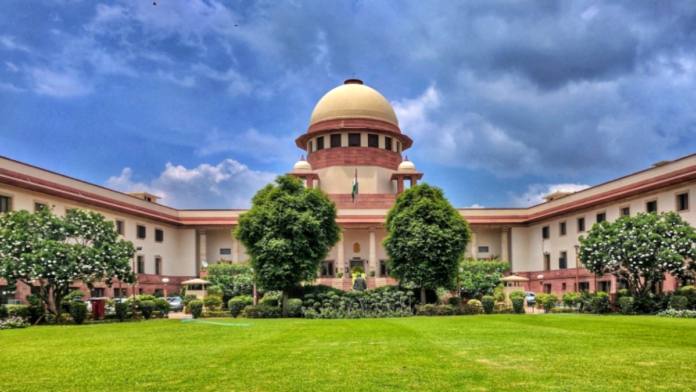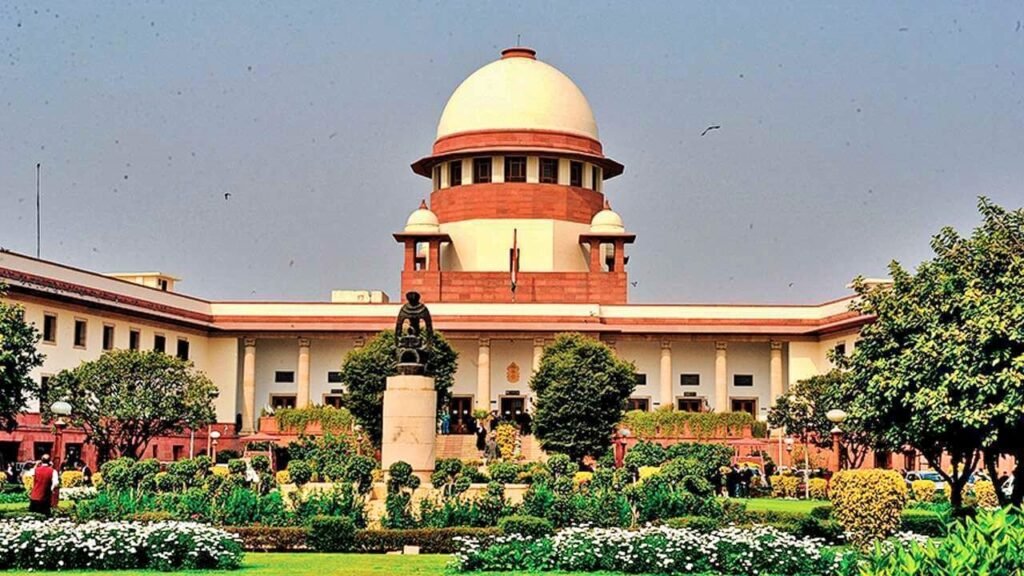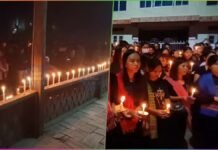
- New Delhi:
- The Supreme Court has directed President Droupadi Murmu to decide within two weeks on the mercy petition of Balwant Singh Rajoana, sentenced to death for the 1995 assassination of Punjab Chief Minister Beant Singh.
- Rajoana, who has been in prison for 28 years, argues for release due to excessive delays in resolving his mercy plea, pending since the government decided to spare his life in 2019 on Guru Nanak Dev Ji’s 550th birth anniversary.
- The court expressed dissatisfaction with the central government’s inaction, emphasizing the urgency of the case.
Rajoana’s Long Wait: Supreme Court Pushes for Presidential Decision
Balwant Singh Rajoana, convicted in the 1995 assassination of Punjab Chief Minister Beant Singh, awaits the President’s decision on his mercy plea after 28 years of incarceration. The Supreme Court, in a strongly worded directive on Monday, asked President Droupadi Murmu to decide on the petition within two weeks.
The case has faced prolonged delays, despite a 2019 government announcement to commute Rajoana’s death sentence to life imprisonment as a gesture of goodwill during the 550th birth anniversary celebrations of Guru Nanak Dev Ji.
Supreme Court Criticizes Central Government for Inaction
A bench comprising Justices B.R. Gavai, Prashant Kumar Mishra, and K.V. Viswanathan expressed disappointment over the government’s failure to respond in the matter. The court noted that no representative from the Centre appeared during Monday’s hearing, despite prior notices.
“Considering the petitioner is on death row, we direct the Secretary to the President to place the case before the President and request a decision within two weeks,” stated the bench. Further hearings are scheduled for December 5.
The 1995 Assassination and Rajoana’s Conviction
Rajoana was sentenced to death in 2007 for his role in the August 31, 1995, bomb blast outside the Punjab Civil Secretariat in Chandigarh, which claimed the lives of Chief Minister Beant Singh and 16 others.
The Supreme Court had previously sought responses from the Centre, Punjab Government, and Chandigarh administration regarding Rajoana’s plea for release.
Constitutional Debate: Can the Supreme Court Direct the President?
The Supreme Court’s directive raises questions about the scope of its authority in relation to the President’s powers. Under Article 143 of the Constitution, the President can seek the Supreme Court’s advice on matters of public importance. However, this advice is not binding.
While the judiciary and the executive are separate entities, the Supreme Court’s role in cases like this emphasizes the need to balance justice and constitutional provisions.
Complex Process of Judicial Appointments and Removals
The President of India has significant authority in appointing judges to the Supreme Court and High Courts. However, the process of removing a judge, as outlined in Articles 124(4) and 124(5), is deliberately complex to ensure judicial independence.
A removal motion requires substantial support in Parliament and must pass through a three-member investigative committee before final approval by the President.

The Supreme Court’s Role: Guardian of Justice and Fundamental Rights
India’s Supreme Court holds unparalleled authority, serving as the final interpreter of the Constitution, protector of fundamental rights, and the ultimate appellate court for civil and criminal cases. Its intervention in Rajoana’s case underscores its commitment to upholding justice, even in the face of executive delays.
As the nation awaits the President’s decision, this case highlights critical intersections between judicial processes, constitutional authority, and human rights.






































